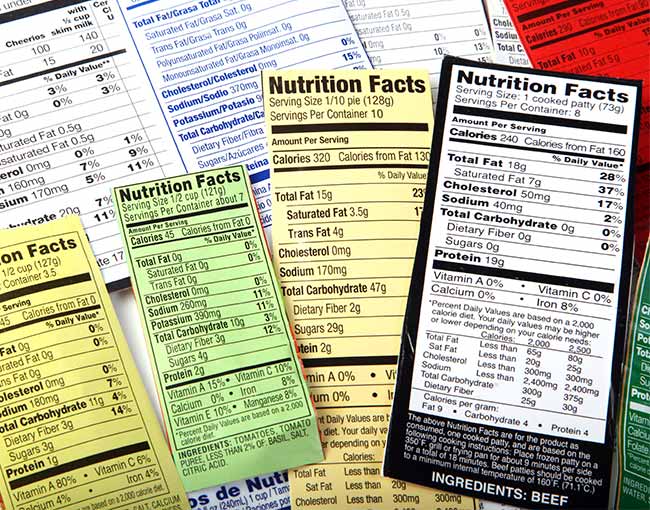Illinois’ “Compassionate Use of Medical Cannabis Pilot Program Act” (CUMCPPA) creates an entire regime of laws, regulations and procedures by which individuals and companies are building medical cannabis growing facilities and dispensaries. These locations will be certified to grow, manufacture or sell a variety of products containing cannabis to be used for medical purposes only.
The statute defines “medical cannabis infused products,” including what are commonly referred to as “edibles,” or food products that contain cannabis. (See 410 ILCS 130/20.) The CUMCPPA also provides a set of labeling requirements for such edibles, combining the existing Illinois Food, Drug and Cosmetics Act (specifically, § 720.40 Food), with new requirements unique to edibles, and components of the federal food labelling requirements created and enforced by the FDA.
The statute, however, contains definitions and referenced statutes that are inherently contradictory.
For example, the CUMCPPA defines “medical cannabis infused products” by using the term “food.” However, dispensaries are required by the CUMCPPA to prominently label each edible with the disclaimer, “Not a Food” on the front of the package. This contradiction evidences the difficulty legislators have had in Illinois and other states with crafting a regulatory regime that tries to avoid federal jurisdiction as much as possible.
The FDA and other federal agencies have taken the position that cannabis is a controlled substance, subject to federal jurisdiction and unfit for medical or recreational purposes unless the product complies with the FDA drug approval process. The conflict among these state and federal laws begs the question as to whether or not cannabis can be a food at all. If an edible cannabis product is marketed as a food, cultivators and dispensaries will be liable for properly labeling the products to comply with FDA food labeling and manufacturing requirements, which require more information than the CUMCPPA. These requirements include a nutrition facts panel, an ingredients listing, and an allergen statement.
To further complicate the issue, the Illinois law refers directly to the federal Food, Drug and Cosmetics Act (Federal FD&CA) and the Federal Fair Packaging and Labeling Act (FFPLA). These are the two largest pieces of federal legislation governing the labeling of all food products in the United States. The Federal FD&CA created the FDA and basic food labeling requirements, while the FFPLA created the modern food label as we see it on the average grocery store shelf. So if edible cannabis products are not foods, why refer to the federal food-labeling requirements at all?
This conflict of laws impacts the entire industry. It is a well-established principle that state laws can be more restrictive than federal laws but not less restrictive. On the face of this conflict, it appears that states, including Illinois, have moved to a less restrictive approach to cannabis than federal law requires. For example, the Illinois requirements add cannabis-specific language and a “use by date,” not required by federal law. However, the Illinois requirements lack the demanding specificity of the FDA requirements, the required nutrition statement, net weight statement and any mention of a specific allergen statement.
What’s more, to the extent that a cannabis-producing company wants to use terms like “organic,” “gluten free,” and others, there are federal certification programs controlled by the FDA or the USDA. Organic claims are controlled by the USDA and require an extensive and expensive certification process, enforced by inspectors and National Organic Program Certified Agents. Manufacturers of products making claims as to their gluten content must be able to ensure that their products have less than 200 ppm gluten per the FDA’s recent final rule.
In the case of Illinois, there remains a very real possibility that a cannabis business may fully comply with the state law requirements and still receive a warning letter from the FDA or be subject to other federal agency actions.
Federal food labeling regulations
The FDA, the FD&CA, and the FFPLA create a regime of federal food labeling requirements that are applicable to nearly all food products manufactured, sold, imported or distributed in the United States. Illinois’ state law was clearly written in such a way as to attempt to skirt these food labeling and manufacturing regulations by requiring dispensaries to market edibles with “not a food.” However, where not marketed as a drug or supplement, federal regulations still apply and will require cultivators to comply with all federal food-related regulations, from labelling to manufacturing practices.
The risks and approach
All of these federal regulatory regimes carry stiff penalties for food manufacturers that fail to comply. The USDA has the power to levy fines up to $11,000 per violation for false or uncertified organic labeling. The FDA has the power to fine manufacturers for putting misbranded (missing required label content, or using inaccurate or misleading content) or adulterated (containing a contaminant, unlisted ingredient, toxin or other substance, possibly including cannabis, as an unapproved ingredient) products on the market. The FDA can also detain or confiscate mislabeled or adulterated products, a process that can take significant time and resources to address. At worst, the FDA, under the Park Doctrine can seek criminal misdemeanor charges against companies, and their officers personally, for overt or intentional violations.
Operators and investors in the cannabis industry should recognize the inherent conflict present between federal regulatory and state cannabis laws, and prepare their product labeling accordingly. Spending the time and resources to get the product labelling right before going to market can avoid significant business hurdles later.
At Thompson Coburn, the Cannabis Practice Group is able to provide counsel on these issues to the cannabis industry. Our attorneys, with years of FDA, federal regulatory healthcare compliance, land use and licensing experience can address your individual issues and recommend a best course of action for your company and your products.
















